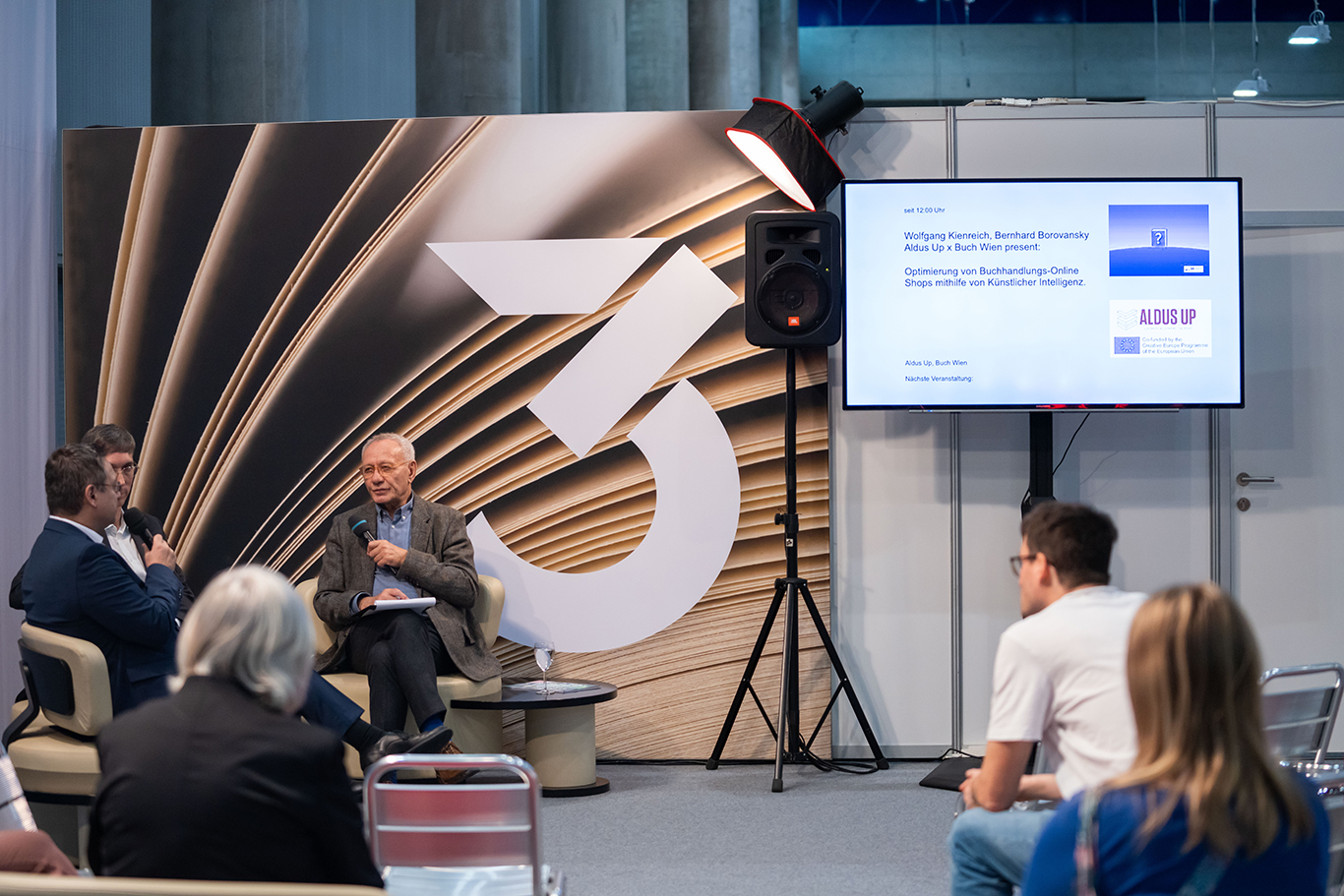lnsight into the future at the Vienna Book Fair: Wolfgang Kienreich, director of the Know-Center in Graz, explains howonline book recommendations could work in the future.
Wolfgang Kienreich is involved in the development of an Al that will recommend books in a targeted and differentiated manner. At the event “Aldus Up x Buch Wien present: The future of publishing” he talked about his research.
Mr Kienreich, AI is now supposed to recommend books. This is particularly relevant for book purchases in the online sector.
When we interact with content online, we give clues about our interests. In bookstores, such cues are reflected withinrecommendations. Online, our interests are currently largely ignored, we primarily receive recommendations for a small selection of mass-produced items. This so-called “popularity bias”, the preference for already known and popular products, is neither in the interest of the customer, who wants individuality and diversity in recommendations, nor in the interest of the trade, which deliberately serves the so-called “long tail”, i.e., numerous smaller interest groups, with individual products. At the Know Center we have developed new recommendation systems that consider the content data and deliver individual recommendations.

How do these recommendation systems work?
Our hybrid recommendation systems consider not only the direct purchasing behavior of the customer but also content-relatedinterests and preferences. This aspect is neglected by many systems that only look at patterns in buying behavior. This also solves a problem known as “cold start”, namely the handling of new books: a book that has never been sold is not recommended byconventional systems. Our process analyses the content of new books and compares them with the content the customers are already interested in. This results in individual recommendations, just as we would expect to get in a bookshop.
How have your experiences been with AI in tests so far?
At the largest European specialist conference ECIR (European Conference on Information Retrieval) in April, a research group fromthe Know-Center was able to show that conventional systems are subject to a “popularity bias” when recommending music i.e., theyput small groups at a disadvantage. Shortly afterwards, we also found corresponding phenomena in book recommendations. Based onthese findings, we were able to develop fair recommendation systems.
How will booksellers be able to apply the system?
If we can recognize content preferences, we can automatically generate individual summaries of books which are much better suited for information and advertising purposes than the current general descriptions. For practical use in the book trade, we want to develop a recommendation platform as an alternative to the trading and recommendation systems of the large internet corporations.
At the Vienna Book Fair you talked about your research …
At the Vienna Book Fair, I presented our findings on the disadvantage of small groups in online book recommendations and propose a practical solution in the shape of a recommendation platform that helps the book trade and its customers alike.
Photo credits: © Nicola Montfort
This article was originally published in the magazine “Anzeiger”.

















